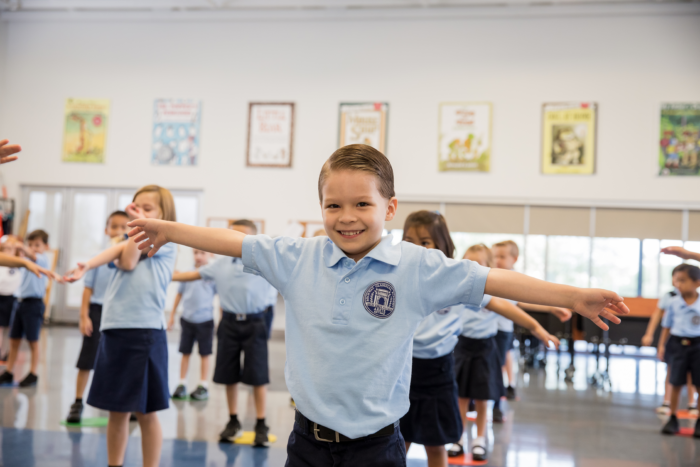The Movers and Shakers of Archway Glendale
 For parents, choosing Great Hearts and a classical education exposes your child to Socratic Instruction, the Great Books, classical literature, and the personalized college counseling that your upperclassman will receive. While all these are great benefits when looking down the road to your child’s educational career, it may not feel applicable to your preschooler sitting at your feet, eating play-doh off the floor.
For parents, choosing Great Hearts and a classical education exposes your child to Socratic Instruction, the Great Books, classical literature, and the personalized college counseling that your upperclassman will receive. While all these are great benefits when looking down the road to your child’s educational career, it may not feel applicable to your preschooler sitting at your feet, eating play-doh off the floor.
How do you know if Great Hearts is the right fit for your child as they begin Kindergarten? Will they be able to handle the academic rigor? Can they hold a scholarly position (heads tall, backs straight, hips back, and feet flat), or even sit still in their seats? We can all appreciate the advantages an education at Great Hearts can give a child, but what about your child?
Parents, don’t worry. Most kindergartners thrive with the expectations at Great Hearts. A few modifications are built into their school day to allow for their developmental stage.
Renee Woinarowicz and Sydney Howard, who co-lead a kindergarten class were asked how a kindergarten school day is structured to accommodate physical movement and play. “Kindergartners that arrive to campus [early] get to participate in free play on the playground before their school day,” said Woinarowicz.
This type of free play may seem supplemental to the day, but it is in fact foundational. This unstructured play time allows our scholars time to explore, create, and discover without predetermined rules or guidelines. Free play fosters cognitive development and boosts physical, social, and emotional development. This activity helps creativity, imagination, problem-solving abilities, and social skills.
Woinarowicz continued, “Our students begin each day with ‘brain work’ at their desk. This includes the use of fun building manipulatives such as Legos, brain flakes, blocks, etc.” Manipulatives have been proven to help students learn by allowing them to move from concrete experiences to abstract reasoning.
“We incorporate wiggle breaks every 20-30 minutes with movement songs, exercises, and stretching,” added Howard. “Students have multiple transitions throughout the day to provide movement such as twirling to the carpet for calendar time or jumping like bunnies to get in line for P.E.” These intentional movements and structured activities aid in memory building and cognitive skills aside from the obvious benefit of helping the students “get their wiggles out.”
Kindergarten scholars who are enrolled in a full day will get 3 full recesses each day. The CDC Healthy Schools website has published an article about recess where they list the following ways that recess benefits students:
- Increases level of physical activity
- Improves memory, attention, and concentration
- Helps them stay on-task in the classroom
- Reduces disruptive behavior in the classroom
- Improves their social and emotional development (e.g., learning how to share and negotiate)
The balance between high education and early childhood pedagogy makes Great Hearts a great fit for the moral and intellectual formation of your child in their early pursuit of Truth, Goodness, and Beauty.